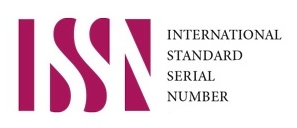18. Development of autonomous power engineering systems with hydrogen energy storage
Organization:
Pidgorny A. Intsitute of Mechanical Engineering Problems, Kharkiv, Ukraine1; Yangel Yuzhnoye State Design Office, Dnipro, Ukraine2
Page: Kosm. teh. Raket. vooruž. 2020, (1); 160-169
DOI: https://doi.org/10.33136/stma2020.01.160
Language: Russian
Annotation: The article analyzes the energy potential of alternative sources of Ukraine. The projects using hydrogen technologies aimed at attracting solar energy to the infrastructure of energy technological complexes, in particular water desalination systems and for refueling automobile vehicles located in areas with high solar radiation potential, are considered. During the operation of water desalination plants using a solar power station as an energy source, contingencies are very likely to arise due to either a power outage (due to cloudy weather) or an emergency failure of individual elements of the system. In this case, it is required to ensure its removal from service without loss of technological capabilities (operability). For this purpose, it is necessary to provide for the inclusion in the technological scheme of the energy technological complex of an additional element that ensures operation of the unit for a given time, determined by the regulations for its operation. As such an element, a buffer system based on a hydrogen energy storage device is proposed. The current level of hydrogen technologies that are implemented in electrochemical plants developed at the Institute of Mechanical Engineering named after A. N. Podgorny of the National Academy of Sciences of Ukraine allows producing and accumulating the hydrogen under high pressure, which eliminates the use of compressor technology.
Key words: alternative energy sources, hydrogen, solar energy, hydrogen generator
Bibliography:
1. Syvolapov V. Potentsial vidnovliuvanykh dzherel enerhii v Ukraini. Agroexpert. 2016. № 12 (101). S. 74–77.
2. Züttel A., Remhof A., Borgschulte A., Friedrichs O. Hydrogen: the future energy carrier. Philosophical Transactions of the Royal Society A: Mathematical, Physical and Engineering Sciences. 2010. № 368(1923). Р. 3329–3342. https://doi.org/10.1098/rsta.2010.0113
3. Vozobnovliaemaia energetika. URL: https://nv.ua/tags/vozobnovljaemaja-enerhetika.htmt (access date: 27.01.2020).
4. Sherif S. A., Barbir F., Veziroglu T. N. Wind energy and the hydrogen economy-review of the technology. Solar energy. 2005. № 78(5). P. 647–660. https://doi.org/10.1016/j.solener.2005.01.002
5. Schlapbach L. Technology: Hydrogen-fuelled vehicles. Nature. 2009. № 460(7257). P. 809. https://doi.org/10.1038/460809a
6. Shevchenko A. A., Zipunnikov M. М., Kotenko А. L., Vorobiova I. O., Semykin V. M. Study of the Influence of Operating Conditions on High Pressure Electrolyzer Efficiency. Journal of Mechanical Engineering. 2019. Vol. 22, № 4. P. 53–60. https://doi.org/10.15407/pmach2019.04.053
7. Clarke R. E., Giddey S., Ciacchi F. T., Badwal S. P. S., Paul B., Andrews J. Direct coupling of an electrolyser to a solar PV system for generating hydrogen. International Journal of Hydrogen Energy. 2009. № 34(6). P. 2531–2542. https://doi.org/10.1016/j.ijhydene.2009.01.053
8. Kunusch C., Puleston P. F., Mayosky M. A., Riera J. Sliding mode strategy for PEM fuel cells stacks breathing control using a super-twisting algorithm. IEEE Transactions on Control Systems Technology. 2009. № 17(1). P. 167–174. https://doi.org/10.1109/TCST.2008.922504
9. Mazloomi K., Gomes C. Hydrogen as an energy carrier: Prospects and challenges. Renew. Sustain. Energy Rev. 2012. № 16. P. 3024–3033. https://doi.org/10.1016/j.rser.2012.02.028
10. Sharma S., Ghoshal S. K. Hydrogen the future transportation fuel: From production to applications. Renew. Sustain. Energy Rev. 2015. № 43. P. 1151–1158. https://doi.org/10.1016/j.rser.2014.11.093
11. Prystrii dlia oderzhannia vodniu vysokoho tysku: pat. 103681 Ukraina: MPK6 S 25V 1/12 / V. V. Solovey, A. A. Shevchenko, A. L. Kotenko, O. О. Makarov (Ukrajina). № 2011 15332; zajavl. 26.12.2011; opubl. 10.07.2013, Biul. № 21. 4 s.
12. Shevchenko А. А. Ispolzovanie ELAELov v avtonomnykh energoustanovkakh, kharakterizuyushchikhsia neravnomernostju energopostupleniia. Aviatsionno-kosmicheskaia tekhnika i technologiia: sb. nauch. tr. 1999. Vyp. 13. S. 111–116.
13. Solovey V. V., Zhirov А. S., Shevchenko А. А. Vliianie rezhimnykh faktorov na effektivnost elektrolizera vysokogo davleniia. Sovershenstvovaniie turboustanovok metodami matematicheskogo i fizicheskogo modelirovaniia: sb. nauch. tr. 2003. S. 250–254.
14. Solovey V., Kozak L., Shevchenko A., Zipunnikov M., Campbell R., Seamon F. Hydrogen technology of energy storage making use of windpower potential. Problemy Mashinostroyeniya. Journal of Mechanical Engineering. 2017. Vol. 20, № 1. P. 62–68. https://doi.org/10.17721/fujcV6I2P73-79
15. Solovey V. V., Kotenko А. L., Vorobiova I. О., Shevchenko A. А., Zipunnikov M. М. Osnovnye printsipy raboty i algoritm upravleniya bezmembrannym elektrolizerom vysokogo davleniia. Problemy mashinostroyeniia. 2018. T. 21, №. 4. S. 57–63. https://doi.org/10.15407/pmach2018.04.057
16. Solovey V., Khiem N. T., Zipunnikov M. M., Shevchenko A. A. Improvement of the Membraneless Electrolysis Technology for Hydrogen and Oxygen Generation. French-Ukrainian Journal of Chemistry. 2018. Vol. 6, № 2. P. 73–79. https://doi.org/10.17721/fujcV6I2P73-79
17. Solovey V., Zipunnikov N., Shevchenko A., Vorobjova I., Kotenko A. Energy Effective Membrane-less Technology for High Pressure Hydrogen Electro-chemical Generation. French-Ukrainian Journal of Chemistry. 2018. Vol. 6, № 1. P.151–156. https://doi.org/10.17721/fujcV6I1P151-156
18. Solovey V. V., Zipunnikov М. М., Shevchenko А. А., Vorobiova І. О., Semykin V. M. Bezmembrannyi henerator vodniu vysokoho tysku. Fundamentalni aspekty vidnovliuvano-vodnevoi enerhetyky i palyvno-komirchanykh technologij / za zahal. red. Yu. М. Solonina. Kyiv, 2018. S. 99–107.
19. Matsevytyi Yu. M., Chorna N. A., Shevchenko A. A. Development of a Perspective Metal Hydride Energy Accumulation System Based on Fuel Cells for Wind Energetics. Journal of Mechanical Engineering. 2019. Vol. 22, № 4. P. 48–52. https://doi.org/10.15407/pmach2019.04.048
20. Phillips R., Edwards A., Rome B., Jones D. R., Dunnill C. W. Minimising the ohmic resistance of an alkaline electrolysis cell through effective cell design. Int. J. Hydrogen Energy. 2017. № 42. P. 23986–23994. https://doi.org/10.1016/j.ijhydene.2017.07.184
Full text (PDF) || Content 2020 (1)
Downloads: 114
Abstract views:
2960
Dynamics of article downloads
Dynamics of abstract views
Downloads geography
| Country | City | Downloads |
|---|---|---|
| USA | Ashburn; Matawan; Baltimore;; North Bergen;; Plano; Ashburn; Ashburn; Ashburn; Phoenix; Phoenix; Phoenix; Phoenix; Phoenix; Phoenix; Phoenix; Phoenix; Phoenix; Phoenix; Phoenix; Phoenix; Phoenix; Phoenix; Phoenix; Phoenix; Phoenix; Phoenix; Phoenix; Phoenix; Phoenix; Phoenix; Phoenix; Phoenix; Phoenix; Monroe; El Monte; El Monte; El Monte; El Monte; Ashburn; Ashburn; Seattle; Seattle; Seattle; Ashburn; Ashburn; Ashburn; Mountain View; Quinton; Houston; Boardman; Ashburn; Ashburn; Seattle; Tappahannock; Portland; San Mateo; San Mateo; San Mateo; San Mateo; Columbus; Ashburn; Des Moines; Boardman; Boardman; Ashburn; Ashburn; Ashburn; Pompano Beach; Lakeside; Lakeside; Lakeside | 73 |
| Singapore | Singapore; Singapore; Singapore; Singapore; Singapore; Singapore; Singapore; Singapore; Singapore; Singapore; Singapore; Singapore; Singapore; Singapore; Singapore | 15 |
| Germany | Falkenstein; Falkenstein; Karlsruhe; Falkenstein | 4 |
| Canada | Toronto; Toronto; Toronto; Monreale | 4 |
| Vietnam | ; Hanoi; Pleiku | 3 |
| Brazil | Rio Grande; Pelotas | 2 |
| Ukraine | Kyiv; Dnipro | 2 |
| France | Paris; Paris | 2 |
| Netherlands | Amsterdam; Amsterdam | 2 |
| Finland | Helsinki | 1 |
| Unknown | 1 | |
| Poland | Poznan | 1 |
| Mongolia | 1 | |
| China | 1 | |
| Latvia | Riga | 1 |
| Romania | Voluntari | 1 |
Visits:2960



